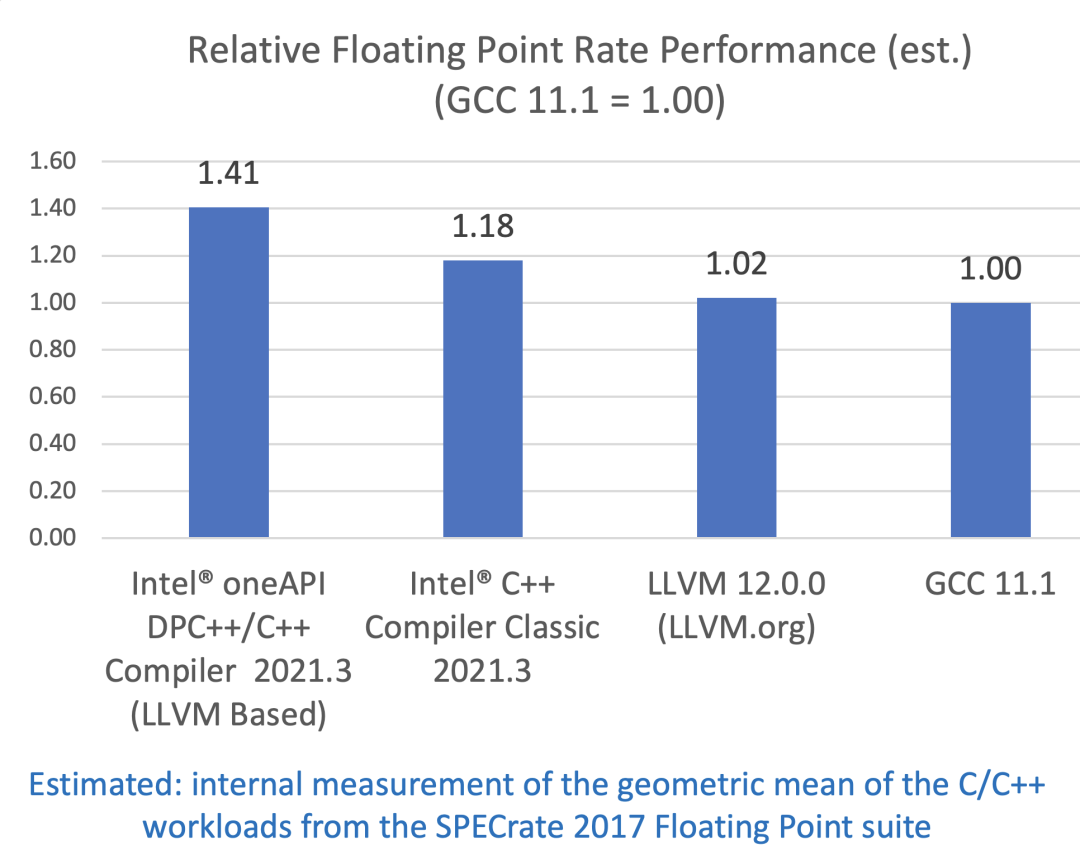Author | Bai KaishuiProduced by | OSC Open Source Community (ID: oschina2013)Intel’s long-time compiler expert James Reinders revealed in a blog that they will use the LLVM open-source infrastructure in the next generation of Intel C/C++ compilers; and shared some related information.“LLVM helps us achieve our goal of providing the best C/C++ compiler for Intel architecture. The latest Intel C/C++ compiler uses LLVM, offering faster compilation times, better optimizations, enhanced standard support, and support for GPU and FPGA offloading… The benefits of adopting LLVM are numerous, and I will provide recommendations for upgrading from classic compilers to LLVM-based compilers. We are committed to making it as seamless as possible while bringing many benefits to developers using Intel compilers.”In terms of build time, Intel engineers reported that the new LLVM-based oneAPI DPC++/C++ Compiler 2021.3 has reduced build time by 14% compared to their classic C++ compiler. While the classic Intel C++ compiler has always been faster than upstream LLVM and GCC, the oneAPI DPC++/C++ Compiler 2021.3 offers performance that is 41% faster than GCC 11.1. Additionally, the floating-point performance of the new LLVM-based compiler is approximately 19% higher than that of ICC.
 James stated that they are focusing on new features and hardware support in the LLVM-based compiler. This includes adding highly optimized support for GPUs and FPGAs while continuing to provide CPU optimizations. The LLVM-based compiler will support SYCL, C++20, OpenMP 5.1, and OpenMP GPU target device support.“We encourage users to take advantage of faster build times, higher levels of optimization, and new features by transitioning to our LLVM-based C/C++ compiler now. Intel is committed to LLVM to help drive continuous innovation and our relentless pursuit of industry-leading optimizations.”He also suggested that all new projects use the LLVM-based Intel C/C++ compiler, and existing projects should plan to migrate to the new compiler this year. James mentioned that at some point in the future, the classic C/C++ compiler will enter ‘Legacy Product Support’ mode. This marks the end of regular updates to the classic compiler base, which will no longer appear in the oneAPI toolkit.“The brand new LLVM-based Intel C/C++ has reached parity with the classic version, and the LLVM-based C/C++ provides the best optimization techniques we have. We recommend all users try the new C/C++ compiler now to enjoy the benefits and provide feedback.”Additionally, an LLVM-based Intel Fortran compiler is also in progress. Currently, a beta version of the LLVM-based Fortran compiler provides extensive support for Fortran, with some features still under development.For more details, please check the official blog: https://software.intel.com/content/www/us/en/develop/blogs/adoption-of-llvm-complete-icx.html
James stated that they are focusing on new features and hardware support in the LLVM-based compiler. This includes adding highly optimized support for GPUs and FPGAs while continuing to provide CPU optimizations. The LLVM-based compiler will support SYCL, C++20, OpenMP 5.1, and OpenMP GPU target device support.“We encourage users to take advantage of faster build times, higher levels of optimization, and new features by transitioning to our LLVM-based C/C++ compiler now. Intel is committed to LLVM to help drive continuous innovation and our relentless pursuit of industry-leading optimizations.”He also suggested that all new projects use the LLVM-based Intel C/C++ compiler, and existing projects should plan to migrate to the new compiler this year. James mentioned that at some point in the future, the classic C/C++ compiler will enter ‘Legacy Product Support’ mode. This marks the end of regular updates to the classic compiler base, which will no longer appear in the oneAPI toolkit.“The brand new LLVM-based Intel C/C++ has reached parity with the classic version, and the LLVM-based C/C++ provides the best optimization techniques we have. We recommend all users try the new C/C++ compiler now to enjoy the benefits and provide feedback.”Additionally, an LLVM-based Intel Fortran compiler is also in progress. Currently, a beta version of the LLVM-based Fortran compiler provides extensive support for Fortran, with some features still under development.For more details, please check the official blog: https://software.intel.com/content/www/us/en/develop/blogs/adoption-of-llvm-complete-icx.html
END

 If you find this useful, please give it athumbs up!
If you find this useful, please give it athumbs up!